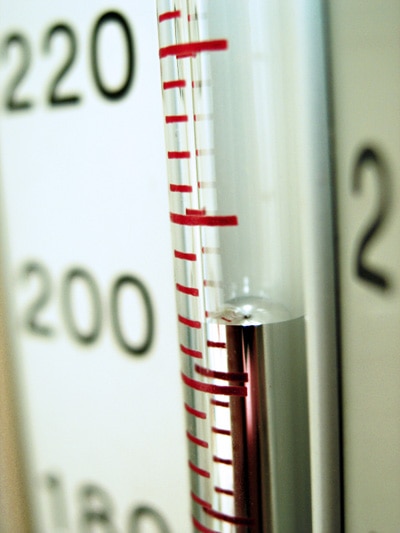
Written By: Gloria Tsang, RD
Title: Founding Registered Dietitian
Alumni: University of British Columbia
Last Updated on:

Many of us are aware of sodium restriction to manage high blood pressure. It was not until 2005 when the updated Dietary Guidelines for Americans drew much attention to potassium having beneficial effects on high blood pressure.
One of the key recommendations from the guidelines is to “consume potassium-rich foods, such as fruits and vegetables”.
The guidelines reignited public interest in a well-known diet called the DASH Diet (Dietary Approaches to Stop Hypertension). The DASH diet, established by the National Heart, Lung and Blood Institute NHLBI, recommends limiting sodium intake to control blood pressure. In addition, it also recognizes the roles of 3 other minerals in controlling blood pressure – calcium, magnesium and potassium.

The benefit of potassium on blood pressure was confirmed by the Third National Health and Nutritional Examination Survey (NHANES III). Published in the Archives of Internal Medicine in February 2001, data on more than 17,000 adults indicated that adequate potassium intake from fruits and vegetables can lower blood pressure. Results showed that a diet with 8.5 daily servings of fruits & vegetables (providing 4,100 mg of potassium) lowered blood pressure by 7.2/2.8 mmHg (systolic/diastolic) in people diagnosed with high blood pressured, compared to a diet providing only 3.5 servings of fruits & vegetables (providing 1,700 mg of potassium). A study published in the January 2009 issue of the Archives of Internal Medicine also showed that people with a low sodium-to-potassium ratio (low sodium, high potassium) are less likely to experience heart diseases.
The recommended daily intake of potassium for all healthy adults is 4,700 mg. But most Americans only consume half the recommended amount. Bananas, beans, tofu and potatoes are all rich sources of potassium. Many fruits and vegetables are also good sources of potassium. Try baking, roasting or steaming when cooking vegetables. Avoid boiling as potassium leaches out into the water during cooking. Speak to your doctor before taking potassium supplements, especially if you have kidney related health problems.
Notes on the diet: In general, a diet that emphasizes fruits & vegetables, whole grains and low-fat dairy appears effective in shaving points off a blood pressure reading. In particular, shedding pounds, cutting down on sodium, boosting potassium intake and limiting alcohol are all proven ways to help control blood pressure.
Alumni: University of British Columbia – Gloria Tsang is the author of 6 books and the founder of HealthCastle.com, the largest online nutrition network run by registered dietitians. Her work has appeared in major national publications, and she is a regularly featured nutrition expert for media outlets across the country. The Huffington Post named her one of its Top 20 Nutrition Experts on Twitter. Gloria’s articles have appeared on various media such as Reuters, NBC & ABC affiliates, The Chicago Sun-Times, Reader’s Digest Canada, iVillage and USA Today.
blood pressure, high blood pressure, lower blood pressure, potassium, sodium